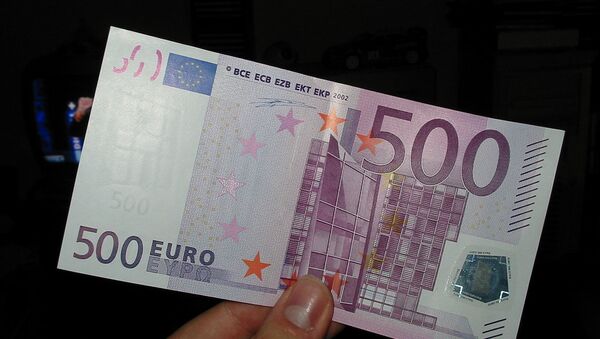"The use of high-denomination notes, in particular the €500 note, is a problem reported by law enforcement authorities," the commission stated.
"According to a Europol report,€500 banknotes represent one third of the value of all banknotes in circulation, even though it is not a commonly used payment instrument."
"These notes are in high demand among criminal groups who engage in the physical transportation of cash due to their high value and low volume. The Commission will work with the European Central Bank, Europol and other relevant parties on this matter to assess whether any specific action is necessary in this area."
The commission cited the "need for a strong coordinated European response to combatting terrorism" in the wake of recent terrorist attacks in the European Union and beyond when announcing the plan, which aims to cut off resources that terrorists use to travel, buy weapons and explosives, plot attacks and spread propaganda online.
"We want to improve the oversight of the many financial means used by terrorists, from cash and cultural artifacts to virtual currencies and anonymous pre-paid cards, while avoiding unnecessary obstacles to the functioning of payments and financial markets for ordinary, law-abiding citizens," Commission Vice-President Valdis Dombrovskis said.
The 500 euro note was introduced with the rest of the euro currency in 2002 to replace the large denominations that were issued by some central banks, for example in Germany and Italy, where people often preferred cash to electronic payments.
"The 500 euro note is really the note of choice among criminals," Ian Cruxton, deputy director of the UK's Serious Organized Crime agency and head of its proceeds of crime investigations, told the BBC in 2010 when the note was withdrawn from sale in the UK.
"We estimate that more than 90 percent of the 500 euro notes that are provided in the UK have actually gone into the hands of serious organized criminals."
As well as curtailing the use of high value notes, other measures included in the EU's terrorist financing Action Plan are those aimed at tackling the risks posed by virtual currencies, which can currently be used with relative anonymity and may be used by terrorist organizations to conceal financial transactions.
The EU also wants to require the distributors of prepaid cards, which were used by the terrorists who carried out the November 13 terrorist attacks in Paris, to verify the identity of their customer.




